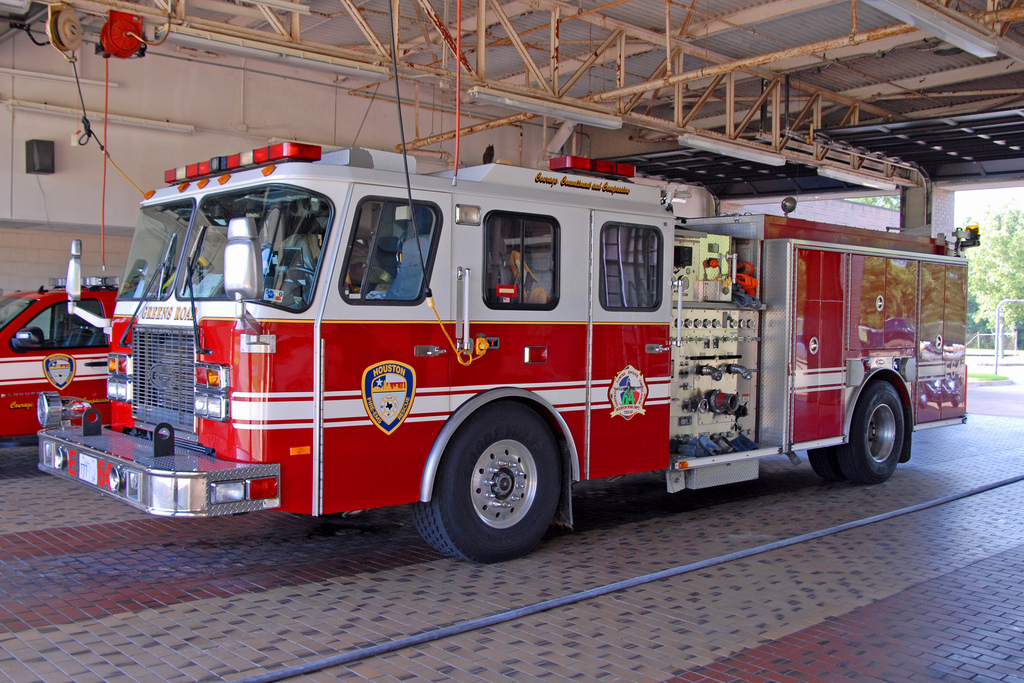
As America pay tribute to the contributions workers have made to the strength, prosperity, and well-being of the United States this Labor Day Weekend, the Houston Fire Department urges citizens to follow some simple safety tips if enjoying the outdoors:
Barbecue Grill Safety Tips
◾Portable barbecue pits, charcoal grills and other open-flame cooking devices outside of a building should not be operated on combustible balconies or located within 10 feet of combustible walls or roofs or other combustible materials.
◾When igniting the barbecue charcoal, citizens should use a charcoal lighter, not gasoline. Gasoline can flash violently in and around the pit causing serious injuries to anyone in the area of the flash. A fire extinguisher or charged garden hose should be handy while the fire is burning. Check the pit frequently to insure that it is okay.
◾Hot ash and coals from barbecue pits and charcoal burners should be placed in a non-combustible container until cooled or thoroughly saturated with water, before being disposed of.
Heat Related Medical Emergencies
The Houston Fire Department reminds citizens about the importance of taking safety measures when outdoors to avoid heat-related medical emergencies, this also includes making sure caregivers “Look Before They Lock” for children left in vehicles. Also, remember that pets should never be left in a vehicle on a warm or hot day.
◾Before conducting outdoors activities and feeling thirsty, drink plenty of water and electrolyte-replacement beverages. Avoid beverages or food sources with caffeine, alcohol or large amounts of sugar because these can actually result in the loss of body fluid. Most popular sodas contain high levels of sugar and should be avoided when conducting strenuous activity. Avoid drinking alcohol the evening before conducting strenuous exercise as alcohol increases .
◾Conduct outdoor work or exercise in the early morning or evening when it is cooler. Individuals unaccustomed to working or exercising in a hot environment need to start slowly and gradually increase heat exposure over several weeks. Take frequent breaks in the shade or in an air-conditioned facility.
◾A wide-brimmed, loose-fitting hat that allows ventilation helps prevent sunburn and heat-related emergencies. A tight-fitting baseball cap is not the best choice when conducting strenuous outdoors activities. Sunscreen also helps protect injury from the sun’s rays and reduces the risk of sunburn.
◾Wear lightweight, light-colored, loose-fitting clothing that permits the evaporation of perspiration. Do not leave children, senior citizens or pets unattended in a vehicle.
Pool and Water Safety
◾Active, focused, adult supervision is the most important safety measure to prevent a water-related tragedy involving a child. The vast majority of children who drown in pools do so in the backyards of their own homes or of relatives.
◾Never leave a child alone near water, always watch your children around swimming pools
◾Enroll children over the age of 3 in swimming lessons taught by qualified instructors. However, swimming lessons don’t make your child “drown proof.” Remember, flotation devices are not a substitute for supervision.
◾Use approved flotation devices
◾If your apartment has a pool, inspect the fence and gate. If the gate does not lock or you find any other defects with the fence, report it to the apartment management immediately.
◾Bring a cell phone to the pool in case of emergency
◾Standing water is the #1 cause of slips and falls around a pool. NO RUNNING on the pool deck!
◾Always have a first aid kit and emergency contacts handy
◾Watch for dangerous “TOOs”- Too Tired, Too Cold, Too Far from Safety, Too Much Sun, Too Much Strenuous Activity
◾Pay attention to local weather conditions and forecasts. If lightning and thunder are nearby, get out until the storm has passed.
Teach Children these safety tips:
◾Always swim with a buddy
◾Don’t dive into unknown bodies of water. Jump in feet first to avoid hitting your head on the shallow bottom.
◾Don’t push or jump on others in or around water
◾Swim in supervised areas only
◾Obey all rules and posted signs
HFD also recommends parents and guardians learn CPR. Seconds count if a person drowns and performing CPR quickly and correctly can save their life. For more information on local CPR classes, please contact the American Red Cross , your local hospitals or medical schools.
♦ Additional safety tips may be found on the HFD website at www.houstonfire.org

Leave a Reply